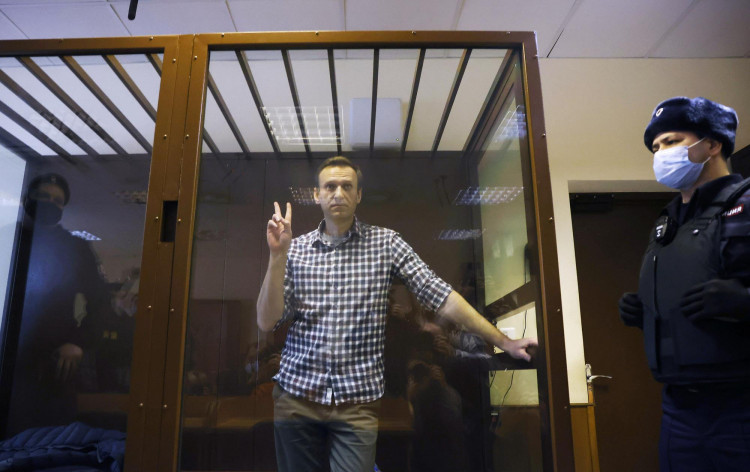Alexei Navalny may be close to death, his doctors say.
His health is causing unrest among Russians calling for his immediate release from prison.
Navalny's doctors said if the Kremlin critic continues his hunger strike "even for a minimal amount of time, unfortunately, we will simply have no one to treat soon."
The doctors based their assessment on the latest test results taken April 20. The opposition leader has been on a hunger strike for nearly three weeks and has requested independent medical care.
Navalny has been treated for kidney and nervous-system problems but his own doctors have been prohibited from attending to him.
Russia's prison authority confirmed Navalny had been moved to a hospital. The Federal Penitentiary Service said Navalny's condition was "satisfactory."
Earlier this week, Navalny posted on Instagram he was a "skeleton staggering round his cell."
Meanwhile, the government remained silent on Navalny's release for medical treatment. Thousands rallied throughout the country in defiance of this.
In photographs from a protest in Ulan-Ude, a city in Siberia, a woman is seen arguing with a police officer. Russia's interior ministry said an estimated 14,400 people participated in 29 different cities.
In Moscow, about 6,000 protesters attended rallies. News agencies estimated more than 1,700 were arrested.
World governments, including the U.S. and the European Union, have called on Russia's President Vladimir Putin to provide medical care for Navalny. Putin remains silent.
Navalny's doctors said the anticorruption activist was at high risk of kidney failure and cardiac arrest. Supporters are skeptical Navalny is receiving medical attention.
In a Time magazine editorial, author and editor-at-large at The Daily Beast, Michael Weiss, said "Russia is murdering the Kremlin's biggest critic in plain sight."
The U.S. President Joe Biden recently announced new sanctions against Russia. But some observers said action more closely linked to the treatment of Navalny was crucial in saving Navalny.





